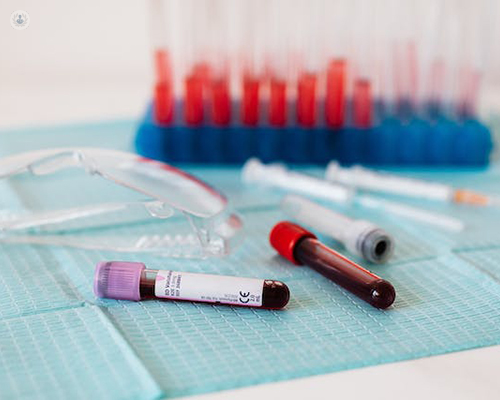Epstein-Barr virus antibody testing
What is analysed in the test?
Epstein-Barr virus antibody testing examines specific elements in the blood, focusing on the presence and levels of antibodies produced in response to the Epstein-Barr virus.

What do the results indicate?
The results provide insight into the individual's immune response to the Epstein-Barr virus. Positive results indicate exposure or current infection, while negative results suggest no recent or ongoing infection.
Why may patients need to undergo the analysis?
Conducting Epstein-Barr virus antibody analysis is crucial for diagnosing and managing conditions related to the virus. It aids in understanding the immune status and potential risks associated with Epstein-Barr virus infection.
When is the right time to undergo the analysis?
The test is recommended when there are symptoms suggestive of Epstein-Barr virus infection or when monitoring specific medical conditions associated with the virus. Timing can vary based on the clinical situation.
Required sample for analysis
A blood sample is typically required for Epstein-Barr virus antibody testing. This allows for the detection of antibodies specific to the virus.
Is any preparation required?
Generally, no specific preparation is required for Epstein-Barr virus antibody analysis. However, healthcare providers may provide specific instructions based on the individual's health and the type of test being conducted.
How is it conducted?
The test involves drawing a blood sample, which is then analysed to detect the presence and levels of Epstein-Barr virus-specific antibodies. The procedure is routine and minimally invasive.
Normal values
Normal values depend on the type of antibodies being measured. Reference ranges are established based on the population, and deviations may indicate different stages of infection or immunity.
Significance of altered values
Elevated antibody levels may indicate a recent or current Epstein-Barr virus infection, while low or undetectable levels may suggest no recent exposure. Understanding these variations is crucial for accurate diagnosis and management.
Table of values

This structured information aims to provide both medical professionals and the general audience with a comprehensive understanding of Epstein-Barr virus antibodies, their analysis, and their significance in health conditions.